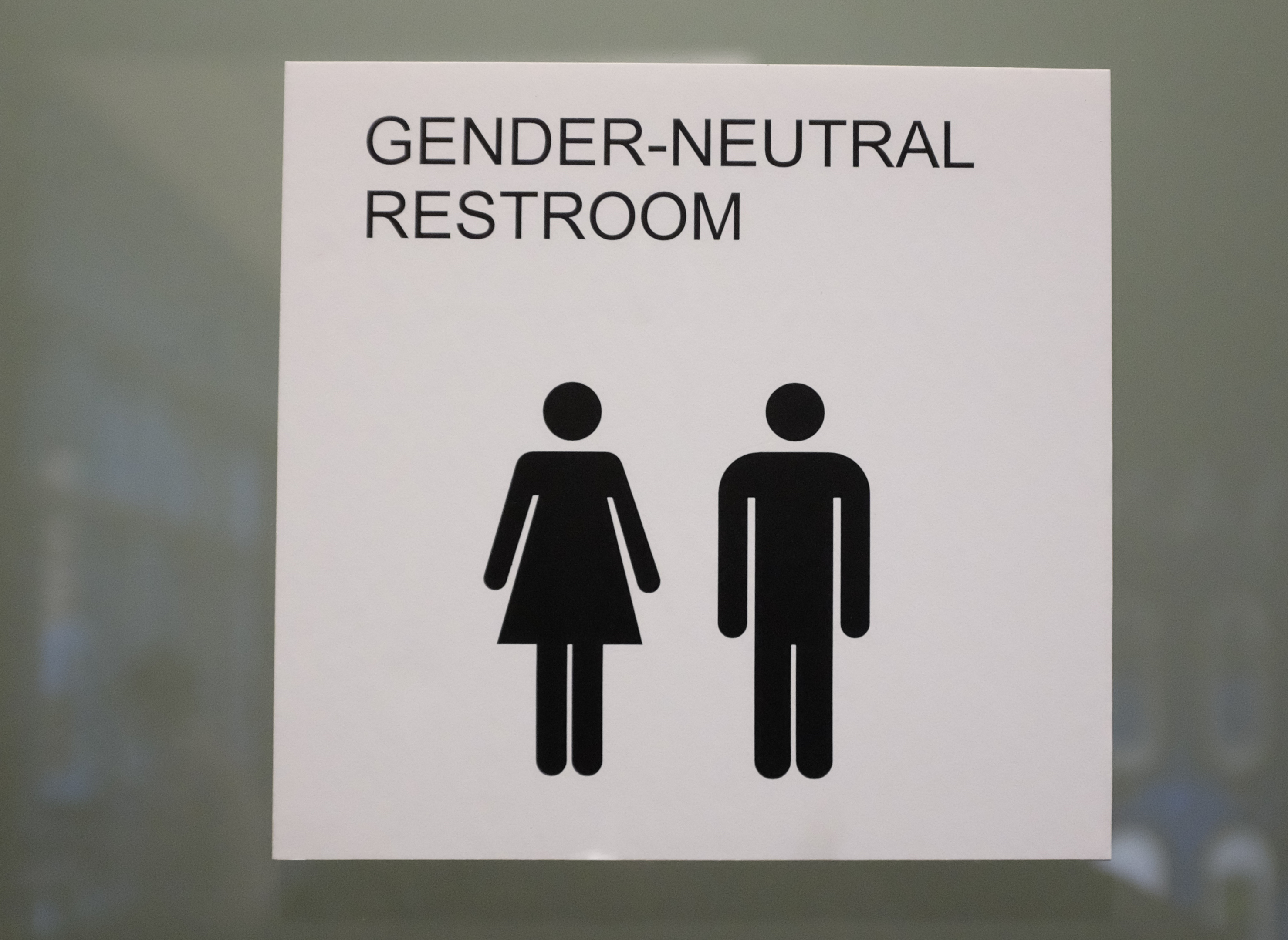NASHVILLE - Top executives at 60 major corporations, including Hilton Worldwide, T-Mobile and Williams-Sonoma, urged Tennessee lawmakers Wednesday to reject controversial legislation requiring students at public schools and colleges to use restrooms and locker rooms matching their gender at birth.
"Discrimination is wrong, and we believe it has no place in Tennessee or anywhere in our country," said the letter listing the executives' names. "As companies that pride ourselves on being inclusive and welcoming to all, we strongly urge you to not pass this bill."
Advocates with the Human Rights Campaign and other lesbian, gay, bisexual and transgender groups delivered copies of the letter to House Speaker Beth Harwell, R-Nashville, and Senate Speaker Ron Ramsey, R-Blountville. LBGT advocates held a news conference to denounce the legislation, which was still in House and Senate finance subcommittees late Wednesday afternoon.
Ramsey backs the legislation and reissued a comment from last week saying so. Late Wednesday afternoon, Harwell told a reporter she had not yet read the letter, but promised to do so.
Tennessee Attorney General Herbert Slatery issued a legal opinion Monday saying the bill, if enacted, puts at risk $1.1 billion or more in federal funds for K-12 schools and higher education.
That's because the Obama administration interprets federal Title IX provisions regarding sex discrimination as including transgender students.
Among the speakers at Wednesday's news conference was Renee McLaughlin, Cigna Healthcare's Chattanooga-based senior medical director, a physician and a transgender woman.
"As a doctor, I know that there are safe, effective and supportive ways of supporting transgender youth and all transgender people," she said. "That does not include forcing them into situations that put them at risk of harassment and physical harm."
McLaughlin told reporters that as an employee and an employer, "I know how important it is to attract the best talent to our organizations."
"I also know that a diverse workforce and a diverse community is a key to our success and enhance our productivity and our overall creativity. I know this because I work for a Tennessee employer, Cigna Healthcare, that employs over 3,000 Tennesseans," she said.
An estimated 1,300 Cigna employees work in Chattanooga.
McLaughlin read a statement from Cigna stating the company's opposition to the legislation, sponsored by Sen. Mike Bell, R-Riceville, and Rep. Susan Lynn, R-Mount Juliet.
"Cigna values and embraces diversity and we strive to treat all our employees and customers with the dignity and the respect that they deserve. We think that this misguided legislation is a step in the wrong direction," McLaughlin read.
The statement said the bill "discriminates against a distinct class of individuals," the statement continued. "Cigna opposes all legislation that is discriminatory. We respectfully urge state leadership to reject it."But Lynn said Wednesday that corporate chiefs are hearing only a one-sided blast against the bill. She said she is "disappointed" none of them have called her to discuss the legislation.
"If they have been given the impression that the leftists who are mailing were giving, I'd probably not have liked the bill myself," she said. "But that's not what the bill does. It's been totally mischaracterized."
Lynn said that besides restricting boys' and girls' restrooms to students based on their gender at birth, the bill allows school officials to provide single-person restrooms or other solutions they deem workable.
Lynn said she will present the bill to the House Finance Subcommittee on Monday.
Earlier, Human Rights Campaign Executive Director Chad Griffin noted a somewhat similar transgender bathroom bill triggered a national uproar and economic retaliation against North Carolina after lawmakers passed it and Republican Gov. Pat McCrory signed it into law.
He said North Carolina lawmakers "planted themselves on the wrong side of history" and that Ramsey and Harwell will be remembered for the outcome in Tennessee.
"What they do on this legislation will define them and define their legacy for the rest of time," Griffin said. "They have a choice and I hope they make the right one."
Senate sponsor Bell rejected what he called a "civil rights" argument after a spokesman for President Barack Obama called the legislation "mean-spirited."
"This is not about equal rights or civil rights - it is about special rights," Bell said. "It is not surprising that the Obama administration in their own words is 'promoting and defending' this action, while ignoring the safety and privacy of young women and girls."
On Tuesday, Senate Finance Vice Chairman Bo Watson, R-Hixson, told Bell his bill would likely be put "behind the budget," meaning there is no amendment providing for its projected costs.
The House and Senate finance committees moved the annual appropriations bills out of committee Wednesday evening. But that doesn't mean the restroom bill is dead.
Legislative fiscal analysts said the bill's net impact is "reasonably estimated" to exceed $300,000 in state tax revenue and $500,000 in local tax revenue.
They cited the possible Title IX issues but noted the "extent and timing of any such withholding cannot be reasonably quantified." They said Tennessee's K-12 system receives $1.1 billion in federal funds and public colleges and universities get $217.2 million.
The Nashville Conventions and Visitors Corp., meanwhile, says it identified 12 groups that could decide to avoid Tennessee if such "discriminatory legislation" became law.
If all 12 groups canceled, Nashville estimates it would lose $57.7 million in direct spending, another $4.44 million in state taxes and $5.78 million in local taxes.
Republican Gov. Bill Haslam also told reporters Wednesday he's been getting calls and emails from corporate executives concerned about the measure.
But the governor said he hasn't heard from parents or school officials that there's any problem requiring legislation. He said he has concerns about the potential impact of loss of federal funding.
"Personally, I am not hearing about problems out in the districts," Haslam told reporters.
"I'm hearing that our school boards have figured out how to adjust to each situation that arises, and to date I'm not hearing parents say we have a problem in our schools today," he said.
Contact Andy Sher at asher@timesfreepress.com, 615-255-0550 or follow via twitter at AndySher1.

